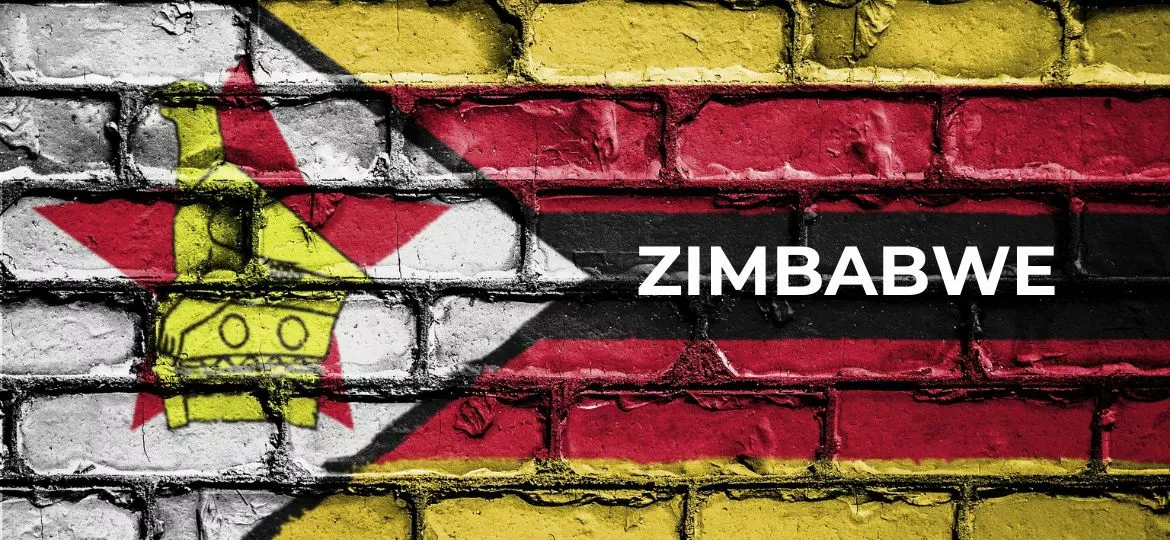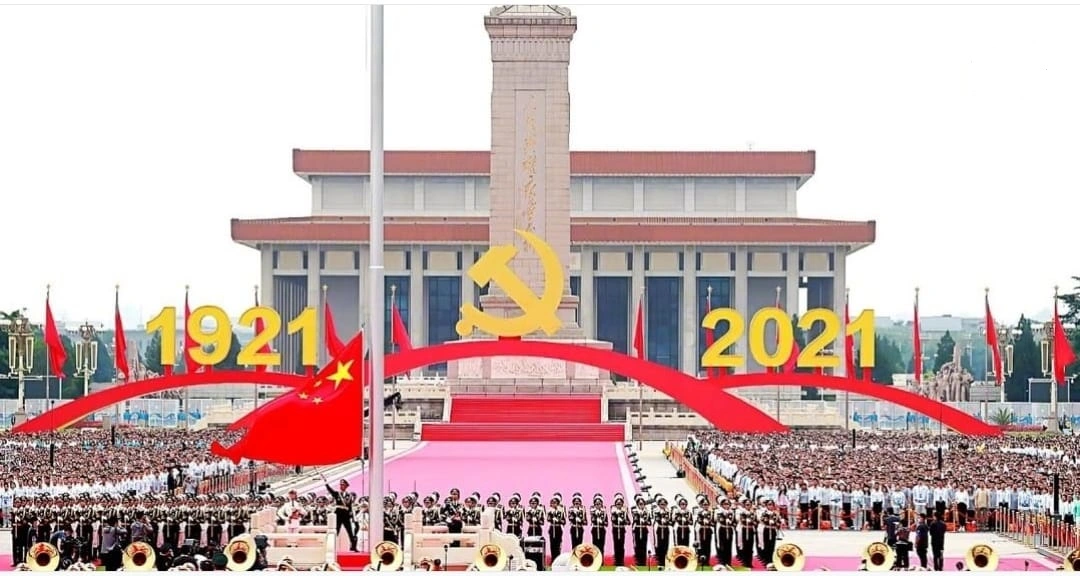Introduction
In a period of increasing tensions, where world powers, caught in the systemic compulsions of our contemporary capitalism dominated by the United States axis, draw closer to forms of world-historical conflict, a third world war being that thing which may if it comes to pass seal the fate of the human species on this planet, it becomes ever more relevant and pressing to read the ideas of those who came before us who confronted these conditions of imperialism, war, and the political-social-economic degeneration into that which we call fascism. Georgi Dimitrov (18 June 1882 – 2 July 1949), Bulgarian communist and leader of the Communist International from 1935 to 1943, later the leader of Bulgaria from 1946 to 1949, was one of those whose written and practical activity reflected in the highest degree a committed engagement with that which can be created to oppose the forms of large-scale destruction embodied in early to mid-century fascism.
If today we are still living under those forms that threaten to engulf the entire world in flames, it is a reminder that we are needing ever more to comprehend what is happening around us, and how best to going about changing it. To understand the conditions of the present, however, necessitates a living engagement with that which precedes us, whose liniments form the historical conditions of what is in effect in the contemporaneity of our moment. As much as it feels to be the case that the time of the past ever faster recedes from where we are in the present, such that our contemporary problems seem to be all consumed within the very proximate conditions that form it, this epoch of the 1930s within which Dimitrov wrote the majority of his most important writings, collected in the work we will be exploring here, his “United Front: The Struggle Against Fascism and War” published in 1938 containing speeches and texts from the period of the Seventh World Congress of the Communist International in 1935, this epoch still holds great relevance for us to understand, as talk of a third world war becomes increasingly heard. Dimitrov’s writings in this period represent a deep theoretical and practical investigation and experimentation of those forms of struggle needed to prevent war, defeat fascism, and create a society built on the leadership of working people in which the horrors of war and domination have been transcended. While the conditions that Dimitrov was responding to and trying to intervene in were certainly different, there are undoubtedly many aspects of the struggle at this time and forms of organization that correspond to it that hold contemporary relevance. For what Dimitrov puts forward is not a set of dogmas extracted from a mix of experience and abstract logic, extended as universal, unchanging principles to guide all action at all times and places, but rather a mobile and historically open set of organizational problems that, while relevant wherever the fight for socialism and collective leadership occurs, do not proscribe any practical formulae that can simply be copied out from the book page to reality. Dimitrov poses open questions and problems of organization, revolving, as we shall see, around the ideas of unity and opposition.
The dialectical movement of these terms create the historical-material method of investigation and analysis that seeks to form the theoretical reflection and guide to action of the practical organizations that are the sole legitimizing and teleological fulfillment of what is postulated in theory. Dimitrov studied and applied the teachings of Marx and Lenin within the organizational structure of the international communist movement, defining what that means in practice within the period of the spread of fascism. The theoretical clarity and practical commitment of Georgi Dimitrov, the questions and problems he posed to his own time that even today, nearly 90 years later, still leap forth with the urgency of flesh and blood, are those that we will here try to draw out in a systematic way, showing the relations between the concepts and the reasons why they were formed.
We will be spending the majority of time looking at Dimitrov’s main report delivered to the Seventh Congress of the Comintern, “The Fascist Offensive and the Tasks of the Communist International,” but we’ll consider as well alongside it his speech in reply to the discussion of his report entitled “Unity of the Working Class Against Fascism” along with his speech delivered at the close of the Congress, entitled “The Present Rulers of the Capitalist Countries Are But Temporary; The Real Master of the World Is the Proletariat.” We will also consider some speeches and texts from the years following 1935, principally his essays entitled “The Struggle for Peace” and “The People’s Front” of 1936. It is the hope of this analysis that a sense of the overall movement and claims of these writings are made clear in their interrelations so that a stronger theoretical grasp of the historical forms of relation to these themes is built up in order that we may be better able to approach the complexities of our moment. No simple reduction of the present to the past forms will suffice to clear the way for a proper theoretical and practical engagement today, but with an understanding of the past in hand, our understanding and thus possibility for action become enriched with the content of accumulated historical experience, on whose basis alone can we hope to advance soundly through all that remains unknown and unfinished.

What Is Fascism?
According to the Thirteenth Plenum of the Executive Committee of the Communist Inter-national, fascism is defined as “the open terrorist dictatorship of the most reactionary, most chauvinistic and most imperialist elements of finance capital”. As it was for Lenin, so for Dimitrov fascism is that which comes about as a way of “solving” the crises brought about through imperialism as the highest stage of capitalism. The ruling bourgeoisie come to seek salvation in it as a way of shifting the burden of increasing capitalist crisis and instability squarely onto the backs of the workers.

Fascism thus is the outright dictatorship of finance capital, the logic of financial capital expressed in its highest form of negation of the working class. But fascism is not only the defeat of the working class, it is also the defeat of the liberal-democratic bourgeois political order: it is the open terroristic vengeance against even the limited forms of democratic rights as they exist within capitalist societies, the thoroughgoing exclusion of all forms of independence and formal liberties.
Fascism produces a qualitative, not simply quantitative, change in the existing political order. But fascism does not come onto the scene all at once. There is rather a quantitative buildup of reactionary measures put in place by the national bourgeoisie that, if not successfully countered, threaten to open up a qualitative rupture that brings onto the scene the open dictatorship of finance capital: “Before the establishment of a fascist dictatorship, bourgeois governments usually pass through a number of preliminary stages and adopt a number of reactionary measures which directly facilitate the accession to power of fascism. Whoever does not fight the reactionary measures of the bourgeoisie and the growth of fascism at these preparatory stages is not in a position to prevent the victory of fascism, but, on the contrary, facilitates that victory”.
Social-Democratic leaders, adherents of the Second International and those who led or were in coalitional governments in the various European countries that most proximately were affected by the rise of fascism at this time, betrayed the people according to Dimitrov, helping create the conditions for destruction of the working class in those areas and moments when the fascist threat was not properly seen for what it was. Those who are not able to mobilize united resistance to the quantitative heightening of fascist forces will not be able to prevent the qualitative change of bourgeois democracy into that of fascism. In this sense, these misleaders of the workers bear the historical responsibility for this failure.
But how does fascism take hold of the people? In relation to an ineffective fightback against it, fascism was effective in taking on the garb of the revolutionary working-class movements, concealing its alliance to the most oppressive capitalist actors through playing on the desperation of the masses and the genuine impulse for revolutionary change. “Fascism aims at the most unbridled exploitation of the masses, but it approaches them with the most artful anti-capitalist demagogy, taking advantage of the deep hatred of the working people against the plundering bourgeoisie, the banks, trusts and financial magnates, and advancing those slogans which at the given moment are most alluring to the politically immature masses” . And so, dressed in the garb of anti-capitalism, fascism institutes an even deeper system of exploitation than that practiced under bourgeois liberal democracies. A new state bureaucracy is formed that functions to an even greater degree as the facilitator of surplus value extraction; monopoly capital is expanded through the outright dictatorial control the state wields over the workers, who have lost even the right to organize, strike, and circulate information. Fascism claims that it will liberate the countryside from the tyranny of the landowners and the banks, but instead only further plunges agricultural workers into domination and servitude.
How was fascism able to come to power? Dimitrov responds that it is because of the class collaborationism of the social-democrats and the weakness of the communist parties to lead a decisive struggle against fascism that fascism was able to accede to power, despite being contrary to the interests of the majority of the people. If the German and Austrian masses had followed the road of the Russian Bolsheviks and not those of the collaborationist social-democrats, “Not the bourgeoisie, but the working class would long ago have been the master of the situation in Europe”. Instead of taking this road, the social-democrats instead granted concessions to the most reactionary forces of the bourgeoisie and split the masses through refusing to form united action with the communist parties and the revolutionary workers. The social-democratic leaders refused to bring the force of the state against the rising fascist movement, instead using the state apparatus to repress and hogtie the communists. Instead of going against the banks that were ruining the peasants, they collaborated with them, which was a central condition of fascism’s spread in the countryside. In Spain, the same story of class collaboration applies, wherein the socialists failed to unite forces, failed to go after the banks, the landlords, failed to purge the armed forces of fascist elements, and failed to fortify the electoral system to prevent the fascists from taking it over. Fascism also was able to take in a large section of the youth through its harnessing of their resentment toward the continued immiseration of living standards overseen by social-democratic administrations, as well as offering youth a promise of a better future through militant activity, which the social-democrats had completely abandoned.
While these conditions apply, Dimitrov does not eschew looking inward as well, pointing to a number of errors committed by the communist parties, which to an extent also bear responsibility for the rise of fascism. A persistent underemphasis of the fascist threat by communists led to a lack of conviction that it presented one of the greatest dangers to the working classes of the world, and hence a lack of organizational defense and sufficient mobilization needed to counter it. Many communists believed that in a country like Germany with long-standing worker movements and a well-established bourgeois democracy, fascism would not be able to take hold. Further, “In a number of countries the necessary development of a mass fight against fascism was replaced by barren hair-splitting as to the nature of fascism “in general” and by a narrow sectarian attitude in formulating and solving the immediate political tasks of the Party”. Despite these errors of both the communists and the social-democrats, Dimitrov emphasizes that preventing fascism was still possible at the time of his writing, and gives a number of conditions needed to be fulfilled in order for that to happen. The working class would need to unite its forces on a much larger scale in order to neutralize those sections of the working class and petty bourgeoisie that fell under its influence. There would need to be strong revolutionary parties that broke definitively with class collaboration and lead the masses. There would need to be a policy of struggle suited to where the uneducated and backward masses stand, leading them steadfastly to see that fascism is a direct threat to them. Finally, there must be a spirit of fight and determination to not cede an inch to fascism and to strike at it wherever it appears. “These are the main conditions for preventing the growth of fascism and its accession to power”.
Yet while fascism had already taken hold of large swaths of the populations of Europe, Dimitrov emphasizes that its hold on power is fundamentally unstable because the forms of resolution to contradictions it attempts to enforce only accentuates class conflict. “The existence of the capitalist system, the existence of various classes and the accentuation of class contradictions inevitably tend to undermine and explode the political monopoly of fascism”. Another reason for instability is related to this, in that despite its proclamations of anti-capitalism crafted to lure in the discontented masses, fascism serves only to aggravate those class contradictions, deepening the divide between the propertyless masses and the integrated monopoly capitalists and fascist state bureaucrats. It also appropriates a large portion of the national resources for war, which only intensifies inter-capitalist rivalries and leads to instability.
But despite these instabilities, “Fascism will not collapse automatically. It is only the revolutionary activity of the working class which can help to take advantage of the conflicts which inevitably arise within the bourgeois camp in order to undermine the fascist dictatorship and to overthrow it”. Yet such seizing of initiative to undermine fascism is difficult, if not impossible, so long as class-collaboration persists, which is precisely what the social-democrats in Germany represented, who bear the majority of historical culpability for the rise and taking over of fascism in their refusal to form a united front with communists.
To be continued…
Editor's Note:
The views and informations expressed in the article are solely those of the author and may or may not reflect the views of The International. We believe in providing a platform for a range of viewpoints from the left.






